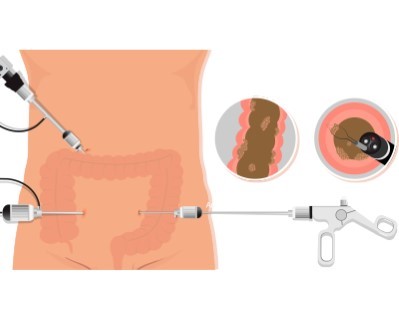Colectomy
- Purpose: Removes part or all of the colon to treat colon cancer, Crohn's disease, or ulcerative colitis.
- Procedure: The affected portion of the colon is surgically removed.
-
Note: The information provided here applies to routine Colectomy procedures under standard conditions. However, specifics may vary depending on individual patient factors, such as the extent of the surgery (partial or total colectomy), the underlying condition being treated, patient tolerance, or any complications that might arise during or after the procedure. The patient’s overall health and the complexity of the surgery can also influence the recovery process.
Inpatient/Outpatient
Colectomy is typically performed as an inpatient procedure, requiring a hospital stay for monitoring and initial recovery. The length of stay depends on the extent of the surgery and the patient’s overall condition.Hospital Stay Duration
Patients undergoing colectomy usually stay in the hospital for 5 to 7 days, depending on the complexity of the surgery and how well the patient is recovering. Longer stays may be necessary if complications arise or if the patient requires more intensive post-operative care.Type of Anesthesia
Colectomy is performed under general anesthesia, meaning the patient will be fully unconscious during the surgery.Travel After Procedure
Patients are generally advised to avoid travel, particularly long-distance or air travel, for at least 2 to 4 weeks after the procedure. This allows time for initial recovery and monitoring for potential complications.Pre-procedure Preparation
Preparation for colectomy involves following specific guidelines provided by the healthcare provider. This may include fasting before surgery, bowel preparation to clean the intestines, and possibly adjusting medications, particularly blood thinners. Pre-operative tests, such as blood work and imaging studies, are often required.Procedure Duration
The colectomy procedure typically takes about 2 to 4 hours, depending on whether a partial or total colectomy is being performed. During the surgery, the surgeon removes the affected portion of the colon and reconnects the remaining sections. In some cases, a temporary or permanent stoma (an opening on the abdomen for waste to pass) may be created.Recovery Time
Recovery from colectomy varies, with most patients needing several weeks to a few months to fully recover. Initial recovery in the hospital involves managing pain, gradually reintroducing liquids and foods, and monitoring for complications such as infection, leakage, or bowel obstruction. Patients are typically advised to avoid strenuous activities and follow a specific dietary plan as they adjust to changes in bowel function.Estimated Cost
The cost of colectomy can vary based on the surgeon's expertise, the complexity of the procedure, geographic location, and whether additional treatments, such as chemotherapy or radiation, are required. For accurate cost information, patients should contact their healthcare provider or hospital directly.Post-procedure Care
Post-procedure care for colectomy involves managing pain, preventing infection, and ensuring proper healing. Patients will need to follow a specific diet, often starting with liquids and gradually progressing to solid foods. If a stoma is created, patients will receive education on stoma care and management. Regular follow-up appointments are essential to monitor recovery, manage any complications, and adjust the treatment plan as needed. It is important to report any signs of complications, such as fever, severe pain, or changes in bowel habits, promptly.

